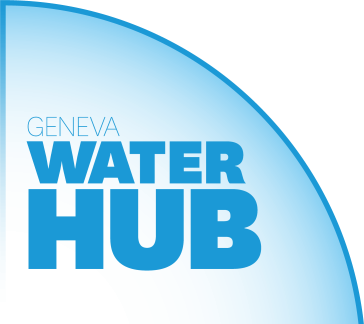
9ème Forum mondial de l'eau - Analyse du deuxième jour
Explorer les innovations financières du Forum mondial de l'eau
Le financement du développement durable peut être une entreprise difficile, car les banques classiques cherchent généralement à obtenir des rendements financiers, et les activités qui sont rentables n'apportent pas en elles-mêmes des avantages sociaux ou environnementaux. Grâce à la recherche et à l'expérimentation, de nouvelles approches peuvent être développées pour atteindre le triple objectif des personnes, du profit et de la planète. Au cours des dernières 24 heures, de nouvelles initiatives très intéressantes ont été présentées lors du 9e Forum mondial de l'eau. Comme ce forum est conçu pour fournir des engagements et des réponses concrètes, il est intéressant d'explorer certaines des innovations financières qui ont été présentées au cours des dernières 24 heures.
Tout d'abord, dans le cadre du Forum de Dakar, un Fonds Bleu a été proposé dans le cadre de l'Organisation pour la Mise en Valeur du Fleuve Sénégal(OMVS), l'organisme de bassin transfrontalier dédié à la coopération internationale et au développement créé en 1972. L'OMVS est un modèle de coopération pacifique et constructive pour le développement et, à la suite d'une table ronde sur le thème de l'eau comme vecteur de paix en 2021, les parties prenantes ont ressenti le besoin de renforcer davantage la confiance mutuelle entre les institutions, les gouvernements (sous-)nationaux et les populations locales pour faire progresser le développement régional et inverser la tendance à la baisse de la sécurité dans la région. C'est pourquoi un espace de financement partagé est mis en place pendant le Forum : le Fonds bleu n'est pas un fonds classique mais un "guichet virtuel" qui peut financer un large éventail de projets élaborés dans le cadre de consultations et ayant un fort impact social et environnemental. Le fonds sera dédié à l'augmentation de la résilience économique dans le bassin et prendra en compte les besoins de subsistance et de génération de revenus des populations locales afin de régénérer la cohésion sociale. Les initiatives qui émergeront feront partie des projets réservés qui serviront à démontrer la capacité du9e Forum à produire des résultats concrets.
Deuxièmement, sur un plan géographique plus large, il y a l'initiative de financement de la paix bleue promue par le Fonds d'équipement des Nations unies et l'Agence suisse pour la coopération au développement. Cette initiative part du constat que l'insécurité de l'eau coûte à l'économie mondiale quelque 500 millions de dollars, et que les flux de capitaux mondiaux pour le développement des ressources en eau ont tendance à se diriger vers les États souverains plutôt que vers les entités infranationales qui ont souvent été mandatées pour assurer la prestation de services. Grâce aux dialogues multipartites ancrés dans les politiques et les pratiques de la gestion intégrée des ressources en eau, il est possible d'élaborer des cadres de coopération qui offrent des options de développement fondées sur le dialogue et les interactions pacifiques. Les cadres de coopération multipartites sont ainsi transformés en plateformes d'investissement qui fonctionnent essentiellement comme des obligations bleues, de la même manière que les obligations vertes sont apparues pour répondre au besoin de projets environnementaux qui, en particulier, apportent des avantages sur le plan climatique. Actuellement, la phase de planification du premier Blue Bond a commencé, avec pour objectif d'obtenir des dividendes de la paix qui créent un environnement propice au développement économique et social dans un cadre stable.
Troisièmement, la Banque islamique de développement et UN Habitat ont partagé les leçons tirées de la mise en place d'un système d'assainissement inclusif à l'échelle de la communauté (Community Wide Inclusive Sanitation - CWIS). L'approche CWIS vise à changer le paradigme de la fourniture d'assainissement, en ouvrant l'espace pour répondre à certaines réalités clés des zones urbaines, semi-urbaines et rurales. Au Sénégal, par exemple, 45% de la population vit dans des zones urbaines, mais le taux de croissance des zones urbaines est de 2,5% par an et bientôt la majorité de la population du Sénégal vivra dans des zones urbaines. Ce taux de croissance n'est cependant pas suivi par le développement de services d'assainissement de base ou de gestion des eaux usées, et les effets du changement climatique contribuent à augmenter la fréquence des événements météorologiques extrêmes et à réduire la qualité de l'eau. L'approche CWIS exige une évaluation franche de la réalité : si une partie du développement spatial s'est déroulée de manière planifiée et inclut à la fois l'assainissement et les eaux usées, il existe également un développement étendu et non planifié. Afin de ne laisser personne de côté, il est nécessaire de fournir un éventail de solutions différentes, comprenant des services centralisés ou décentralisés, avec ou sans égouts. Le CWIS propose un éventail de technologies et de modèles commerciaux différents : dans de nombreuses régions, les ménages disposent des ressources nécessaires pour investir dans l'assainissement ; dans d'autres régions, la chaîne de valeur doit être analysée afin d'évaluer s'il existe des activités susceptibles de générer des revenus permettant de couvrir les coûts d'investissement. Sur la base des expériences positives de l'approche CWIS, la Banque islamique de développement adopte une approche mixte et personnalisée de l'assainissement à Dakar.
Dr Tobias Schmitz
Conseiller en développement, The Water Diplomat
